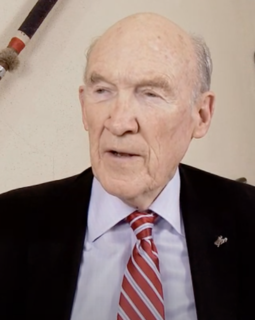A Quote by Morten Tyldum
Trying to explain Turing's work in encryption and decryption? It's complicated.
Quote Topics
Related Quotes
I think it's interesting because the 1990s ended with the government pretty much giving up. There was a recognition that encryption was important. In 2000, the government considerably loosened the export controls on encryption technology and really went about actively encouraging the use of encryption rather than discouraging it.
Although I'm not prepared to move up my prediction of a computer passing the Turing test by 2029, the progress that has been achieved in systems like Watson should give anyone substantial confidence that the advent of Turing-level AI is close at hand. If one were to create a version of Watson that was optimized for the Turing test, it would probably come pretty close.
The reality is that if you - let's say you just pulled encryption. Let's ban it. Let's you and I ban it tomorrow. And so we sit in Congress and we say, thou shalt not have encryption. What happens then? Well, I would argue that the bad guys will use encryption from non-American companies, because they're pretty smart.
Clipper took a relatively simple problem, encryption between two phones, and turned it into a much more complex problem, encryption between two phones but that can be decrypted by the government under certain conditions and, by making the problem that complicated, that made it very easy for subtle flaws to slip by unnoticed. I think it demonstrated that this problem is not just a tough public policy problem, but it's also a tough technical problem.
So, in 1993, in what was probably the first salvo of the first Crypto War, there was concern coming from the National Security Agency and the FBI that encryption would soon be incorporated into lots of communications devices, and that that would cause wiretaps to go dark. There was not that much commercial use of encryption at that point. Encryption, particularly for communications traffic, was mostly something done by the government.
By trying to give an artistic approach through my book I stepped unwillingly into other fields. Like a dentist being asked about a throat ache on a much more relevant scale, I was caught in trying to explain what was unexplainable for me. In the end, trying to explain why it was unexplainable finally led to a huge general insecurity in dealing with the subject at all.



































